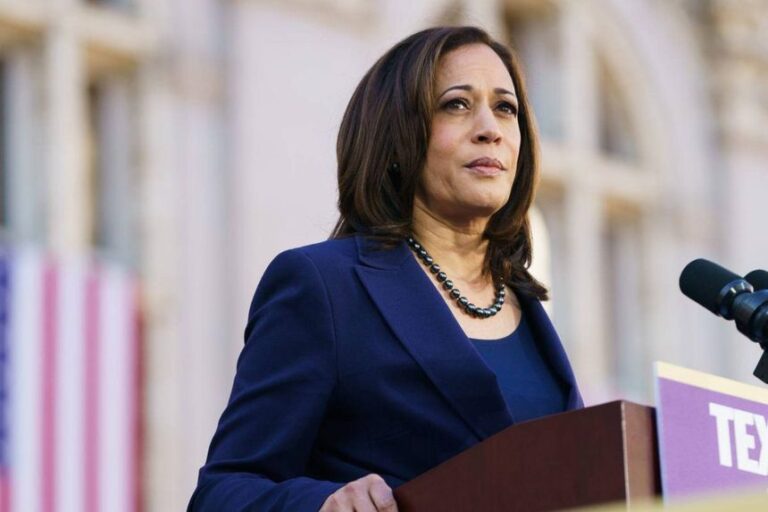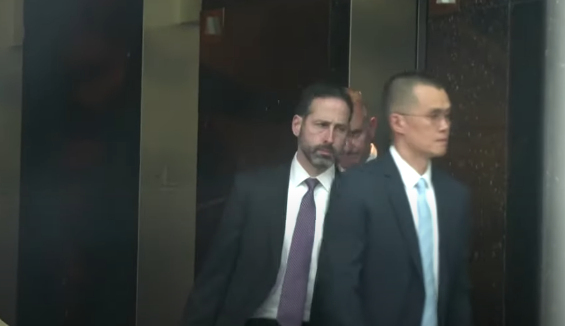In the ever-evolving world of cryptocurrency, where the line between innovation and regulation is often blurred, Vice President Kamala Harris has recently found herself at the center of a heated debate. On one side, Harris’ senior policy adviser, Brian Nelson, has publicly stated that she is committed to fostering the growth of emerging technologies and the cryptocurrency industry. On the other side, critics like Nate Geraci, president of The ETF Store, have voiced their concerns about the current administration’s stance on cryptocurrencies, accusing it of being overly restrictive.
This dichotomy presents a fascinating look into the challenges of balancing technological advancement with regulatory oversight—a balancing act that has become increasingly important as the cryptocurrency landscape continues to expand.
Harris’ Commitment to Emerging Technologies
It’s no secret that Vice President Kamala Harris has shown a keen interest in the potential of emerging technologies. Her policy adviser, Brian Nelson, has emphasized this point, noting that Harris is dedicated to supporting innovation in areas like artificial intelligence, blockchain, and cryptocurrency. The rationale behind this support is clear: emerging technologies have the potential to revolutionize industries, create jobs, and keep the U.S. competitive on the global stage.
Nelson’s statements are in line with Harris’ broader vision of leveraging technology for economic growth. The cryptocurrency industry, in particular, has been a focal point due to its rapid expansion and the potential it holds for disrupting traditional financial systems. Harris’ support for the cryptocurrency industry signals an understanding of the need to embrace technological change rather than resist it. However, this support is not without its complexities.
The Government’s Firm Stance on Cryptocurrency
Despite Harris’ stated commitment to innovation, the current administration, of which she is a key member, has faced criticism for what some perceive as a firm opposition to cryptocurrencies. Nate Geraci, president of The ETF Store, has been vocal in his criticism, arguing that the administration’s approach to cryptocurrency regulation is overly stringent and could stifle innovation.
Geraci’s concerns are not unfounded. The cryptocurrency industry has long been wary of government intervention, fearing that excessive regulation could hamper the very innovation that makes the industry so promising. The government’s cautious approach to cryptocurrency is rooted in concerns about security, fraud, and the potential for cryptocurrencies to be used in illegal activities. These concerns have led to a regulatory environment that some in the industry view as hostile.
The Regulatory Dilemma: Innovation vs. Security
The tension between innovation and regulation is a common theme in the tech world, and it’s particularly pronounced in the cryptocurrency industry. On one hand, there’s a need to protect consumers and maintain the integrity of financial systems. On the other hand, overly aggressive regulation can stifle innovation and push technological advancements overseas, where regulatory environments may be more favorable.
Harris’ commitment to supporting emerging technologies suggests that she understands this delicate balance. However, the administration’s broader stance indicates a focus on ensuring that the rapid growth of the cryptocurrency industry does not come at the expense of security and financial stability.
This regulatory dilemma is not unique to the U.S. Governments around the world are grappling with how to approach cryptocurrency regulation. Some have taken a hands-off approach, allowing the industry to grow largely unimpeded, while others have imposed strict regulations to mitigate potential risks. The U.S. appears to be taking a middle road, aiming to encourage innovation while also addressing legitimate concerns about the risks associated with cryptocurrencies.
The Role of Cryptocurrency in the Future of Finance
Cryptocurrencies have the potential to fundamentally alter the way we think about money and finance. From decentralized finance (DeFi) platforms to blockchain-based payment systems, the possibilities are vast. For this reason, the debate over how to regulate cryptocurrencies is so crucial. The decisions made today will shape the future of finance for years to come.
Harris’ support for the industry, as expressed by her policy adviser, reflects a recognition of the transformative potential of cryptocurrencies. However, the administration’s regulatory approach also suggests a recognition of the need to proceed with caution.
This cautious approach is not without merit. The cryptocurrency industry has seen its share of scandals and failures, from fraudulent initial coin offerings (ICOs) to the collapse of exchanges. These incidents underscore the need for some level of oversight to protect consumers and maintain confidence in the industry.
The Crypto Community’s Response
The cryptocurrency community is known for its passionate defense of decentralization and innovation. For many in the industry, any form of government regulation is viewed with suspicion. However, there’s also an understanding that some level of regulation is necessary to legitimize the industry and encourage broader adoption.
The community’s response to Harris’ support has been mixed. While many appreciate her recognition of the industry’s potential, others are wary of the administration’s broader regulatory stance. This tension highlights the challenges of crafting policies that foster innovation while also protecting consumers.
Some in the community have called for a more collaborative approach to regulation, where the government works closely with industry stakeholders to develop policies that strike the right balance. This approach could help to address the concerns of both regulators and the crypto community, fostering an environment where innovation can thrive while also ensuring that the risks associated with cryptocurrencies are managed effectively.
The Path Forward: Collaboration and Dialogue
As the cryptocurrency industry continues to evolve, the need for ongoing dialogue between the government and the industry becomes increasingly important. Harris’ support for emerging technologies and the cryptocurrency industry is a positive sign, but it’s clear that more work needs to be done to bridge the gap between innovation and regulation.
Collaboration will be key to finding a path forward that supports the growth of the cryptocurrency industry while also addressing the legitimate concerns of regulators. This could involve the development of regulatory sandboxes, where new technologies can be tested in a controlled environment, or the creation of industry-led initiatives to promote best practices and self-regulation.
The future of cryptocurrency regulation in the U.S. will likely be shaped by a combination of these approaches. Harris’ commitment to supporting innovation, combined with the administration’s focus on security and stability, suggests that the U.S. will continue to play a leading role in the global cryptocurrency landscape.
Conclusion
Vice President Kamala Harris’ support for the cryptocurrency industry, as articulated by her policy adviser Brian Nelson, is a welcome development for those who believe in the transformative potential of emerging technologies. However, the criticisms leveled by Nate Geraci and others highlight the ongoing challenges of balancing innovation with regulation.
As the cryptocurrency industry continues to grow and mature, the need for thoughtful, nuanced regulation will only become more important. Harris’ role in shaping the future of cryptocurrency in the U.S. will be crucial, and the decisions made by the current administration will have far-reaching implications for the industry and the broader economy.
The path forward will require collaboration, dialogue, and a willingness to embrace change while also managing the risks that come with it. By finding the right balance, the U.S. can position itself as a leader in the global cryptocurrency landscape, fostering innovation while also protecting consumers and ensuring financial stability.
FAQs
1. What is Kamala Harris’ stance on cryptocurrency?
Kamala Harris, through her senior policy adviser Brian Nelson, has expressed support for the growth of the cryptocurrency industry as part of her broader commitment to emerging technologies.
2. Why is Nate Geraci critical of the current administration’s stance on cryptocurrency?
Nate Geraci, president of The ETF Store, criticizes the current administration for what he perceives as overly stringent regulations on the cryptocurrency industry, which he believes could stifle innovation.
3. How does the current administration balance innovation and regulation in the cryptocurrency industry?
The administration seeks to encourage innovation in emerging technologies, including cryptocurrency, while implementing regulations to ensure security, financial stability, and consumer protection.
4. What challenges does the cryptocurrency industry face in terms of regulation?
The cryptocurrency industry faces challenges such as potential over-regulation, which could stifle innovation, and the need for oversight to prevent fraud, security breaches, and illegal activities.
5. What is the future of cryptocurrency regulation in the U.S.?
The future of cryptocurrency regulation in the U.S. will likely involve a combination of government oversight, industry collaboration, and regulatory sandboxes to balance innovation with risk management.





